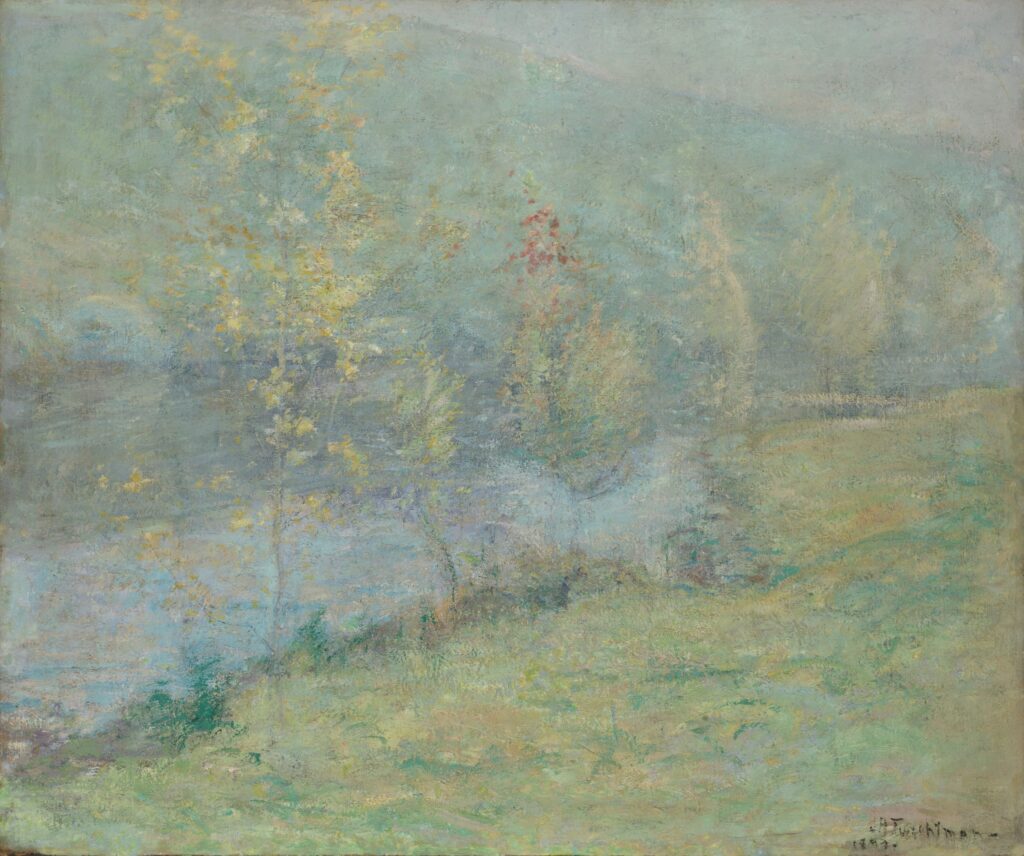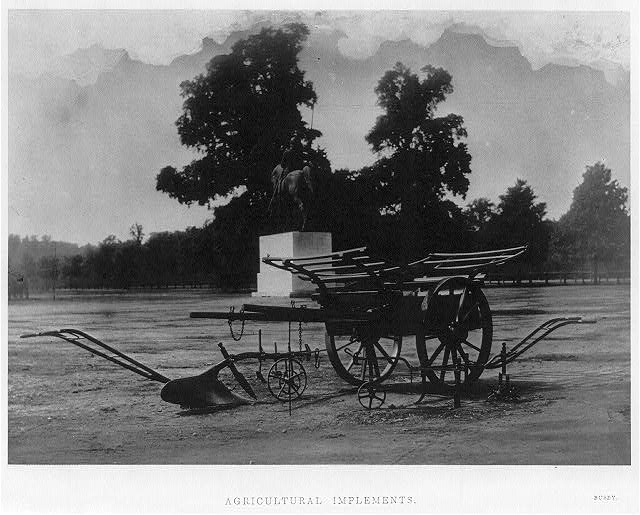A Longing for Spring
By A New Contributor
Annotations by Abby Army/JB

and its Renwick Gallery, Washington, D.C.
When from a sunnier land than ours Will come the gentle Spring again, With verdant fields and glowing flowers And song and beauty in her train? When will the sunshine, glad and warm, Set the imprisoned waters free, And calm the icy, foaming sea? Within these narrow walls I pine Out on the sunny hills to go, Where the wild flower and running vine And the green grass are wont to grow. I long to tread the fields alone, Where gliding streams, with voices mild, Murmur for aye the quiet tone That thrilled me even when a child. I long to roam the pathless woods Where all day long the shadows lie; To shout within their solitudes, And hear the fainting echo die:
Or lie upon some rocky steep, And linger in the shining sun Long hours, within valleys deep, To hear the laughing waters run. But more than all, I long to guide The ploughshare in the fragrant soil, And feel once more the joy and pride, The jocund health, of peaceful toil. I heed the Summer’s beauteous bloom, And Autumn’s gorgeous offering, And Winter pale with storm and gloom; But most I love the gentle Spring!

A New Contributor. “A Longing for Spring.” The Knickerbocker; or New York Monthly Magazine 35, no. 4 (April 1850): 293.
Contexts
This poem was published amid significant events in the U.S. The year prior brought the California Gold Rush, which changed the nation’s development as it combined with existing expansion to drive white settlers west in much higher numbers and had a devastating effect on California Native Americans and people of Chinese, Mexican and Spanish descent. The Fugitive Slave Act of 1850 made the federal government more active in upholding slavery. The mention of plowing in the penultimate stanza, which glorifies agriculture, must be read against the fact that slave labor was still prevalent at this time. In terms of technology, this was also an era of continuing development, such as the relatively new horse-drawn reaper made by Cyrus McCormick in 1834 and, starting in 1837 and continuing into the 1840s, the first commercially-successful steel plows, which included the designs created and manufactured by John Deere.
Definitions from Oxford English Dictionary:
jocund: Feeling, expressing, or communicating mirth or cheerfulness; mirthful, merry, cheerful, blithe, gay, sprightly, light-hearted; pleasant, cheering, delightful.
ploughshare: The large pointed blade of a plough, which, following the coulter, cuts a slice of earth horizontally and passes it on to the moldboard.
verdant: Of a green hue or color.
wont: Accustomed, used; in the habit of (doing something).
Resources for Further Study
- A short summary of the Fugitive Slave Law of 1850, and the full text of the law
- Symposium proceedings from the California Center for Native Nations regarding genocide during the Gold Rush
- Chilean and Mexican immigrants during the Gold Rush
- A brief overview of Chinese immigrants during the Gold Rush; this site has many other articles
- An interview with Sarah L. Byrd about her family’s move from Iowa to Oregon in 1848
- A Smithsonian publication about John Deere’s steel plow